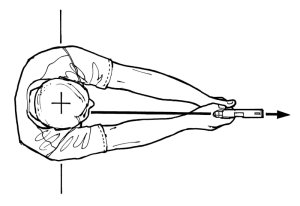
Getting Your FFL License
 What is a FFL?
What is a FFL?
FFL is an acronym that stands for federal firearms license. In a nutshell, this is the license which allows you to buy, sell, transfer, repair, and manufacture firearms.
What you can specifically do with your license depends on the type of license you get. There are nine different types of licenses which are as follows:
- Type 01- Dealer in Firearms/Gunsmithing
- Type 02- Pawnbroker
- Type 03- Collector of Curios and Relics
- Type 06- Manufacturer of Ammunition of Firearms
- Type 07- Manufacturer of Firearms/Ammunition
- Type 08- Importer of Firearms/Ammunition
- Type 09- Dealer in Destructive Devices
- Type 10- Manufacturer of Destructive Devices
- Type 11- Importer of Destructive Devices
Why Get a FFL?
Having practically unlimited access to the firearms market is every gun lover’s dream. While getting your FFL license doesn’t mean you can magically get a hold of an impossible to find gun, it does open up many doors of opportunity to gain access to a plethora of firearms. Your FFL is your golden ticket to purchase from wholesalers; and between the thousands of them, you’re bound to find everything you need.
You can also make a great side income with your FFL license. And to make a key point here, you MUST be intending to make a profit with it. The Bureau of Alcohol, Tobacco, Firearms, and Explosives (simply ATF for short) will not approve your application for a federal firearms license if you plan on having it only for personal use. Also, if you only plan on selling at gun shows, a FFL license is not required. That being said, the mark up from wholesale to retail is about thirty percent. It may not be a veritable gold mine, but it’s certainly a plausible side income.
Finally, as a FFL dealer, you will be able to provide the service of performing transfers. With more and more gun sales happening online, FFL licensees are needed to conduct the transfer process. Essentially, when an online gun sale occurs, that gun must be shipped to a FFL licensee who will then perform the background check on the purchaser. The more FFL holders there are who are willing to do transfers, the more options the purchaser has for where a gun can be shipped.
How Does One Get a FFL?
Getting your FFL license is really just a matter of applying for it and then meeting with ATF to discuss. There are several forms which need to be filled out, all of which can be found online via the ATF’s website. You can print off the .pdf versions of a couple of the forms, but you’ll likely need to order the blue FBI fingerprint cards.
You can set up your FFL license in several different ways- as an individual, a partnership, or a LLC/Corporation. Once you get your application sent off, the ATF has sixty days to respond to your application, as per federal law.
The ATF will perform the background check; make sure everything looks good; and then, upon finding no issues with your application, set up a meeting with you.
The application forms and process can appear a little confusing or overwhelming, but there are sites out there to help walk you through the entire process. If you are nervous about making mistakes, most gun owners are a little hesitant about sharing information they don’t have to with the federal government.
One of these sites is FFL123.com, which consists of guides for getting your FFL license and your Class 3/SOT license. The Class 3/SOT is the license required to deal in NFA items such as silencers, short barreled rifles, machine guns, and the like.
Source: Natalie Bailey
www.ffl123.com



